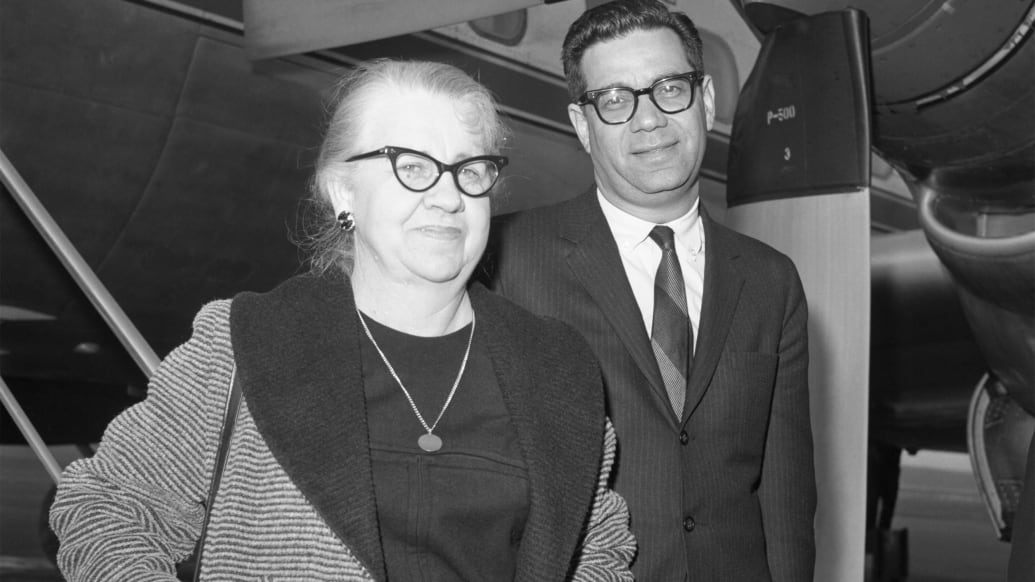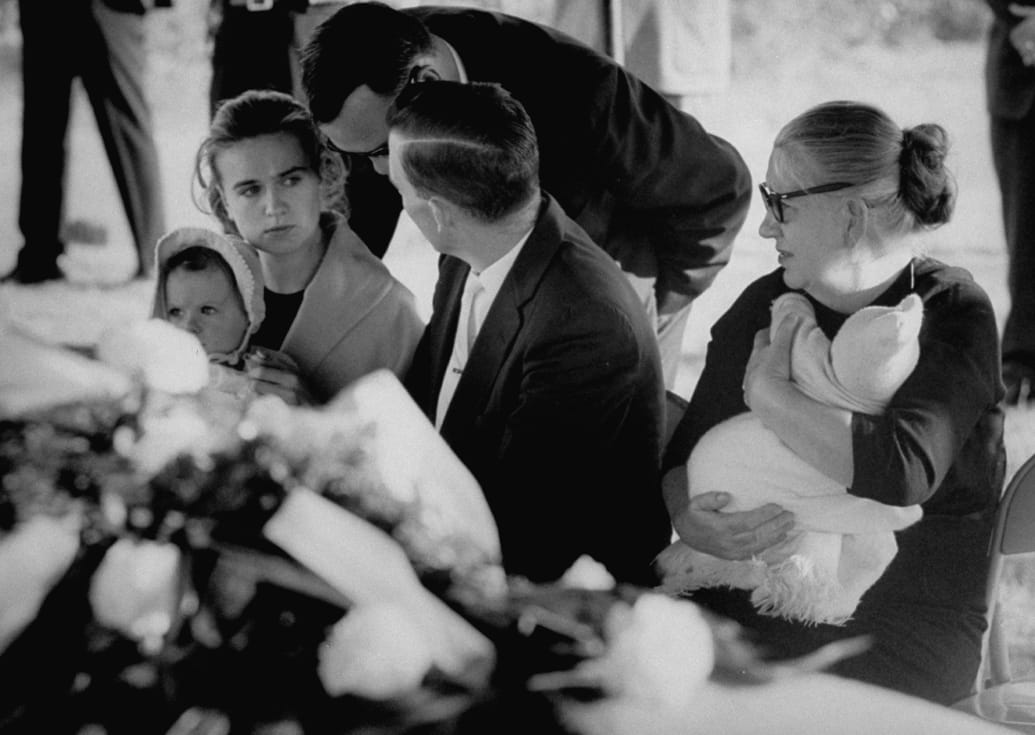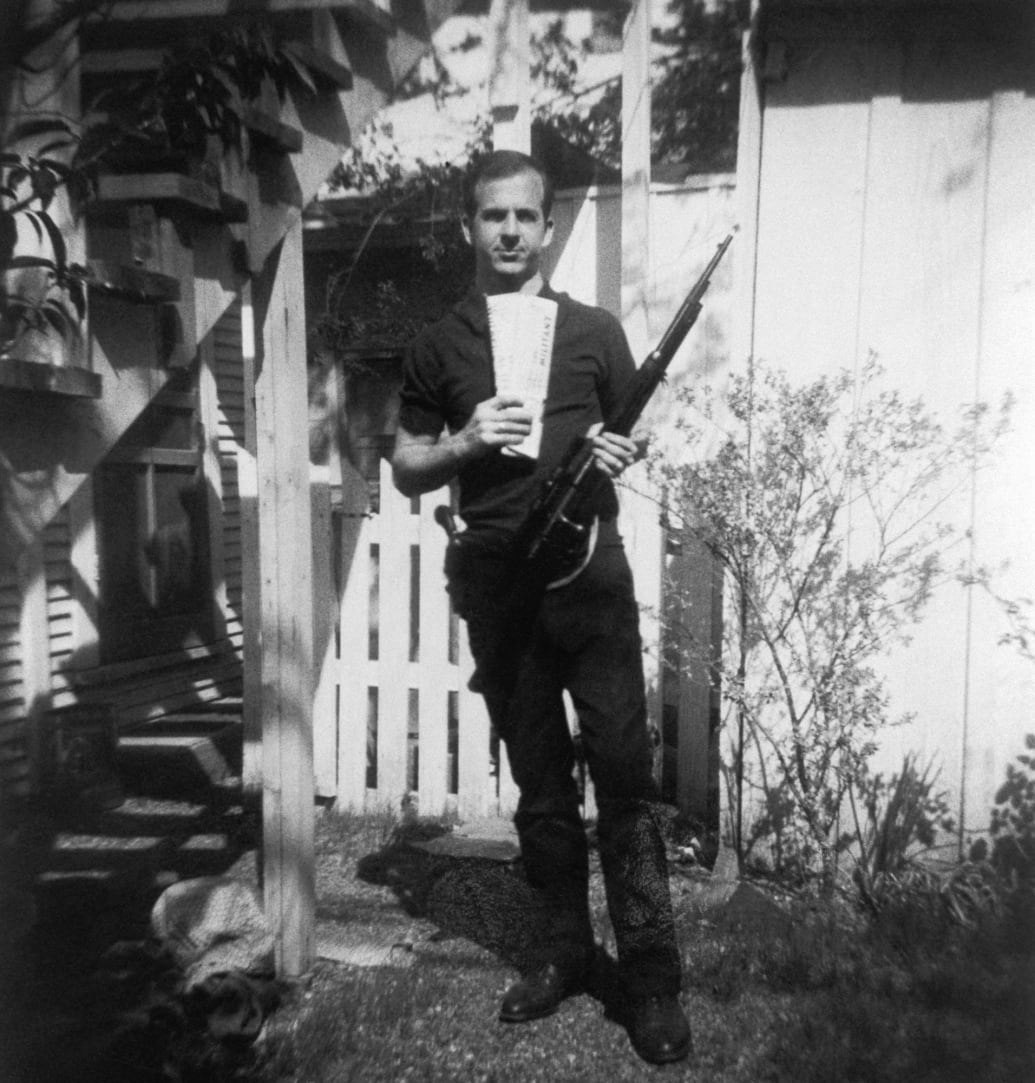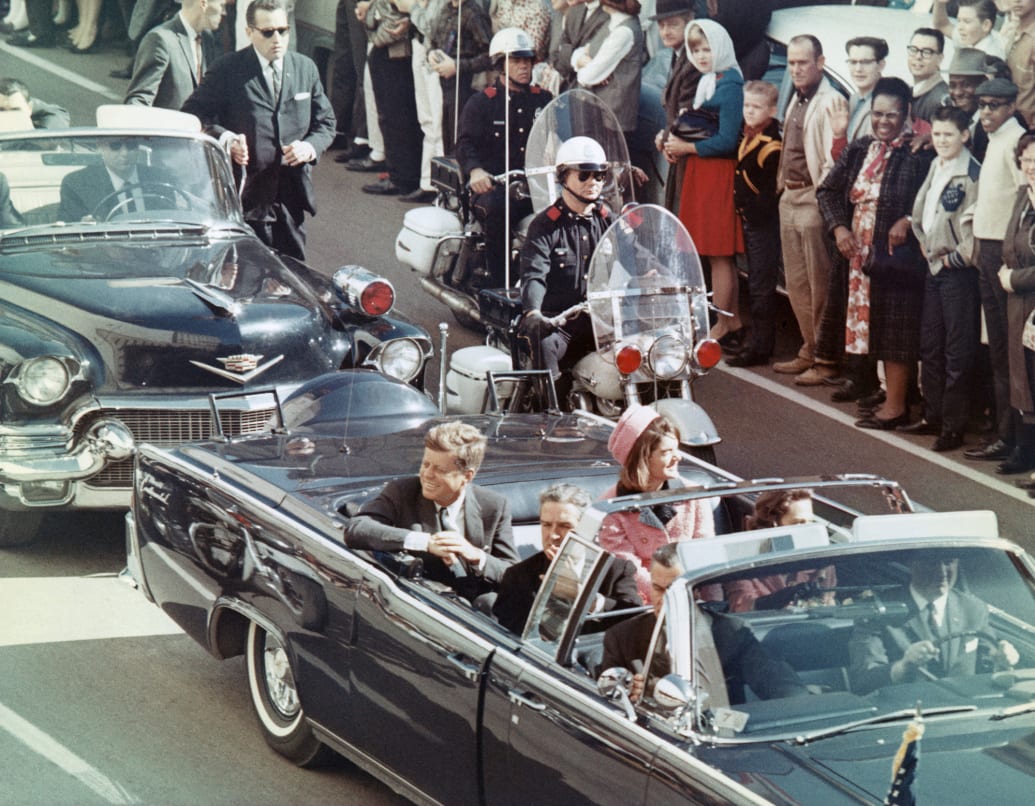Lee Harvey Oswald Was America’s First Travis Bickle
Oswald #Oswald
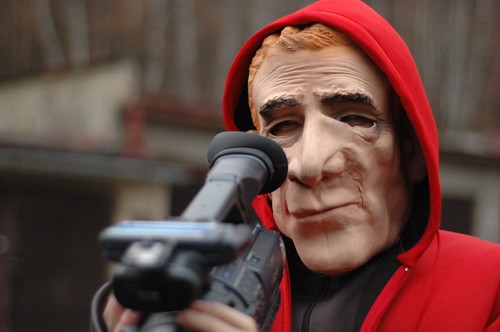
Deanne Stillman’s critically acclaimed books spring from that place where the American West and the American lust for violence collide. On Nov. 22—the 60th anniversary of the assassination of President John F. Kennedy—she will publish American Confidential: Uncovering the Bizarre Story of Lee Harvey Oswald and His Mother. Stillman spoke recently with the writer Bill Morris. This is a lightly edited version of their conversation.
With your earlier books—Twentynine Palms, Desert Reckoning, even Mustang—you had the field pretty much to yourself. They were your stories and you sort of owned them. But now, with Lee Harvey Oswald and his mother Marguerite, you’re getting into terrain that’s been turned over hundreds and thousands of times. How did you approach this challenge?
Deanne Stillman: It’s true that there are hundreds of books and thousands of articles on this subject, and I hesitated at first to write this book because obviously I was aware of that. But one reason I wanted to write it is because in looking into the story over the years I kept seeing something parallel to this in my other books—which is to say, how family pathologies sync up with violent acts. I realized this was playing out in a big way in the Oswald family. I really wanted to bring that out because hardly anybody talks about such matters in the way I talk about them—by weaving place into my stories. In this case, the locations are New Orleans, the Bronx, Fort Worth, and Dallas, and I take a look at how Oswald and his mother interacted with those places. There’s a lot of cultural context that isn’t looked at in the other books. The zillion conspiracy theories that have consumed this conversation have obliterated that part of the story.
I thought it was refreshing that your book steers clear of the conspiracy theories. You were much more concerned with this woman, as a mother, and the disconnect with her son. Let’s talk about some of the influences you had. One of the books we’ve both read, and one that really knocked me out, was Jean Stafford’s A Mother in History, where Stafford spent three days talking with Marguerite. What a weird little book!
It’s so strange. At the end of it, Stafford comes away feeling that Marguerite was threatening her life. And Marguerite says, “Well, so what if Lee killed JKF? He’s a national hero! He put JFK out of his misery because he had Addison’s disease. He should be buried at Arlington National Cemetery.”
Marguerite Oswald, mother of slain accused presidential assassin Lee Harvey Oswald, in New York with attorney Mark Lane.
Bettmann/Getty Images
When I read that, I thought this woman was completely off the rails.
Yes, she was completely off the rails. Something I’ve seen in all the other stories I’ve written is that there is often a demented mom in the household—at the very least a beleaguered mom. And sometimes this figure encourages violence in a particular son. I say in my book that Oswald was America’s first Travis Bickle, from Taxi Driver. There’s the famous picture of Oswald with his rifle, and to me that’s the first selfie of a young man with a weapon. And I think of it as, “You talkin’ to me? You talkin’ to me, Ma?”
Marina Oswald Porter, wife of Lee Harvey Oswald, left, brother Robert L. Oswald, center, Marguerite Oswald, right, mother of Oswald, attend the funeral of Lee Harvey Oswald.
Donald Uhrbrock/Getty Images
I’ve written down some of the words you and others have used to describe Marguerite, who I think is a fascinating character. Here’s my laundry list: “she’s always right,” “she’s ungrateful,” she’s “rigid,” “selfish,” “a nag and a snob,” “a vortex of self-pity.” And the result is: Lee Harvey Oswald. He felt like an outsider no matter where he went, and he is the child of this woman. That’s your story, isn’t it?
Yes, and as I got deeper into the story I realized there were a lot of noir aspects. Marguerite reminded me of various characters in noir films and books, including James M. Cain’s Mildred Pierce, Amanda Wingfield in The Glass Menagerie, and the Anjelica Huston character in The Grifters, which is based on a Jim Thompson novel. These are all desperate women, and they’re filled by want and need, and they believe that nobody appreciates them and they have to compensate for that. And that’s something Marguerite passed on to Lee. She was constantly making excuses for him, starting from the time he was a young boy. She immediately came to his defense and said, “My son can do no wrong. It’s a free country, and I know my rights”—which is the refrain of the person who feels like the perpetual victim. I’m not saying we don’t all have these rights, but you often hear it from people who are self-pitying and narcissistic. In the end, when Lee Harvey Oswald waxes JFK and he gets busted, one of the first things he says is, “I know my rights.” And he’d killed two people that day and there was almost a third.
Another influence you mention is Don DeLillo’s novel Libra. In it he writes of Marguerite: “Her life became a dwindling history of moving to cheaper places.”
That’s so true. In my book I explore the fact that she worked a series of menial jobs from the time she dropped out of high school—a secretary, a babysitter, a nanny, she would sell insurance out of her car, she even sold notions out of the family’s front room. With her temperament and this job history, she was overtaken by a serious class resentment, and she passed that on to Lee.
Lee Harvey Oswald holds a Mannlicher-Carcano rifle and newspapers in a backyard.
National Archives/Corbis via Getty Images
You’ve got to admit that the oddest of her many odd jobs was selling her business cards for $5 apiece, which read “Marguerite Oswald, Mother of Lee Harvey Oswald.” And this was after the assassination of JFK!
I know. And that’s why I talk about The Grifters in my book. There was nothing Marguerite didn’t try to cash in on. Her sons all joined the military because they wanted to get as far away from her as they could. In Lee’s case, I think the reason he left the Marine Corps and defected to Russia was partly because of this love-hate relationship he had with his mother. Remember, his father died before he was born.
“Lee Harvey Oswald and Marguerite Oswald inadvertently formed a conspiracy of one. They mounted a desperate campaign to matter. ”
A few years back, a guy named Anders Breivik shot 77 people, most of them children, on an island in Norway. Karl Ove Knausgaard, the novelist, wrote an article in The New Yorker about the massacre, and he noted that Norway is a place where people are not supposed to draw attention to themselves. Breivik, kind of like Oswald, was a nobody, invisible, ignored by everybody. And Knausgaard came to the conclusion that Breivik’s act was his way of saying, “Look at me!” And that’s what Lee Harvey Oswald was saying that day in Dallas, wasn’t it?
Oh, absolutely. As I said, I see him as the first Travis Bickle. And don’t forget that the character of Travis Bickle was based on Artie Bremer, who tried to whack Gov. George Wallace in 1972, and who had himself written about Oswald. Mass shooters today are attention seekers, and they often take selfies of themselves and now they’re live-streaming themselves. “Look at me! Look what I’m doing!” And I really think this started with that photo of Oswald with his rifle. It’s one of the most notorious images of a man with a weapon. Some of the mass shooters of today have that picture in their files or up on their walls.
President John F. Kennedy, First Lady Jacqueline Kennedy, Texas Governor John Connally, smile at the crowds lining their motorcade route in Dallas, Texas, on Nov. 22, 1963. Minutes later the President was assassinated as his car passed through Dealey Plaza.
Bettmann/Getty Images
You make the point in your book that Oswald’s shots are still ricocheting around American schools and shopping malls and churches today, as we keep experiencing mass shootings. Beyond that, it seems to me there’s a pretty straight line between what happened in Dallas 60 years ago and all the noise we have today—I’m thinking about QAnon, alternative facts, the stolen election, Democrats running prostitution rings out of pizza parlors. Do you agree that Dallas was the spawning ground that got us to where we are today?
Yes. The conspiracy theories that came about after the JFK assassination have snowballed into this huge monster. They’re destabilizing the country. But what I say in my book is that together Lee Harvey Oswald and Marguerite Oswald inadvertently formed a conspiracy of one. They mounted a desperate campaign to matter. They were in a desperate pursuit of fame and recognition, and that all erupted on Nov. 22, 1963.
In closing, I’d like to read a sentence that comes at the end of your book and really sums it up for me. You wrote: “In the end, after all, this is a story of how we raise children, and how they break when love is deprived, of how even grownups cannot survive without it.” I think that’s what your book is about, isn’t it—the importance of love, and what happens when we don’t get it?
Absolutely that’s what my book is about.
Bill Morris is the author of the novels Motor City Burning, All Souls’ Day, and Motor City, as well as the nonfiction books American Berserk and The Age of Astonishment: John Morris in the Miracle Century, From the Civil War to the Cold War. He is currently writing a history of the Detroit Lions of the NFL.
